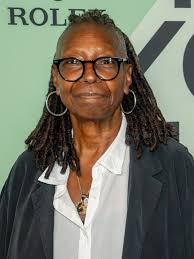The Impact of Whoopi Goldberg on Film and Society

Introduction
Whoopi Goldberg is not only one of the most celebrated actors in Hollywood but also a prominent activist, known for her fierce advocacy on important social issues. Her contributions to film and television have made her a household name, and in recent years, her activism has resonated with audiences seeking change. In a time marked by societal shifts and calls for equality, Whoopi’s voice remains vital.
Career Highlights
Born Caryn Elaine Johnson in 1955, Whoopi rose to fame with her iconic role in ‘The Color Purple’ (1985), for which she received an Academy Award nomination. Over the years, her talent has earned her numerous accolades, including an Academy Award, a Golden Globe, and a Tony Award, making her one of the few entertainers to achieve EGOT status (winning an Emmy, Grammy, Oscar, and Tony).
Her work on ‘The View’, where she has served as a co-host since 2007, showcases her ability to engage with pressing issues, providing a platform for discussions on race, gender, and politics. Furthermore, her comedic talents, evident in films such as ‘Ghost’ (1990) and ‘Sister Act’ (1992), have made her a beloved figure in popular culture.
Advocacy and Social Impact
In addition to her film career, Whoopi Goldberg is a passionate advocate for various causes, including LGBTQ+ rights and social justice. She has used her platform to discuss the importance of representation in media, often challenging stereotypes that plague the entertainment industry. Recently, she has been a vocal advocate regarding issues of racial equality and women’s rights, encouraging others to speak out and take action.
Goldberg’s candid discussions about her own experiences with racism and sexism have shed light on systemic injustices, prompting audiences to reflect on these critical societal issues. Her efforts extend beyond television, as she engages in philanthropic initiatives supporting education and health care for underprivileged communities.
Conclusion
Whoopi Goldberg’s role as both an entertainer and an activist illustrates the power of celebrity influence in shaping public discourse. As she continues to challenge societal norms and advocate for meaningful change, her legacy will likely inspire future generations to use their voices for activism. The continued relevance of her work serves as a reminder to readers of the potential impact individuals can have when they harness their talents for advocacy.
